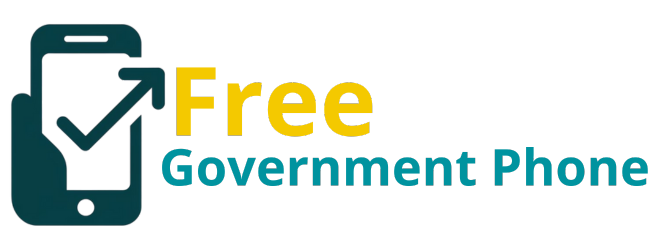You can stand at the intersection of College Avenue and Dickson Street in Fayetteville and see every stripe of Arkansan life. Some people stroll with smartphones glued to their hands, others shuffle by, checking old flip phones or nothing at all.
For seniors on Medicaid – especially those who have never signed up for a free government phone – this divide isn’t just about gadgets. It’s about connection, safety, and dignity. We’ve seen it up close, and we help bridge that gap every day, right here in Northwest Arkansas.
Key Takeaways
- You’re likely eligible for a free government phone in Fayetteville, AR, if you participate in Medicaid or another qualifying program.
- Our Free Government Phone service guides seniors step-by-step, with online courses and personal consultations that make the process straightforward.
- The Lifeline program covers your basic connectivity needs at no cost, but understanding the details – plan limits, annual requirements, and documentation – is essential for peace of mind.
Overview of Government Phone Plans in Fayetteville, AR
The Arkansas Lifeline program has been a lifeline in every sense for a lot of people we’ve helped. The Lifeline phone plan, funded by the federal government, is designed for low-income households who need reliable phone service but can’t afford commercial rates.
Lifeline Program Basics
The Lifeline program started back in 1985, aiming to make phone service more affordable for people who genuinely needed it. In Fayetteville, Lifeline eligibility depends on your income or participation in certain programs, such as Medicaid, SNAP, or SSI (Supplemental Security Income).
Eligibility Criteria and Income Guidelines
You’re eligible for Lifeline if your household income is at or below 135% of the federal poverty guidelines. For most, that’s about $20,331 a year for a single person. Or, you qualify if you’re on Medicaid, SNAP, SSI, or certain other federal assistance programs. From our experience, Medicaid is the most common route for seniors in Fayetteville.
Benefits and Services Included
With the Lifeline phone plan, you get:
- A free phone (usually a basic smartphone)
- Free or discounted monthly service
- Enough minutes and data for calls, texts, and limited web use
We often see plans with 350 to 1,000 minutes, unlimited texts, and 4.5GB or more of data per month. It’s not unlimited, but for most seniors – especially those new to smartphones – it covers doctor calls, family chats, and appointment reminders.
Major Lifeline Providers in Fayetteville
Three main Arkansas Lifeline phone companies serve Fayetteville:
Assist Wireless: Features and Eligibility
Assist Wireless is one we’ve helped many people sign up for. Qualifying is straightforward if you’re on Medicaid or SNAP. Their free government phone service includes a basic smartphone, 1,000 minutes, unlimited texts, and 4.5GB of data each month. You can walk into their local booth or sign up online – which our online program can guide you through step by step.
SafetyNet Wireless: Plan Details and Free Phone Offer
SafetyNet Wireless offers 350 minutes, unlimited texts, and 4.5GB of data. They’ll also give you a free phone if you qualify. We’ve found their online enrollment system simple, but it does require uploading proof of program participation or income.
Life Wireless: Services for Low-Income Families
Life Wireless is another solid option for families and seniors. They provide a similar free government phone package and are known for responsive customer support. Their plans are no-contract, so you’re never locked in.
Enrollment and Application Process
We’ve walked dozens of seniors through the Arkansas Lifeline phone application. The process can feel intimidating at first, but with a little guidance, it’s manageable.
How to Apply for Lifeline in Arkansas
You can apply for a Lifeline phone plan online or by mail. Most of the seniors we help prefer to use our online program, which walks you through every screen and form.
Required Documentation and Proof of Income
You’ll need:
- A photo ID (state-issued or federal)
- Proof of Medicaid participation (Medicaid card, benefit letter)
- Or, proof of income (recent pay stubs, tax return, or government benefit letters)
Our online course highlights exactly which documents are accepted and how to scan or upload them, so you don’t get stuck halfway through the application.
Online vs Mail Application Methods
Applying online is faster – approval can be same day or within a week. Mail applications take longer, sometimes two to three weeks, and there’s always the risk of documents getting lost. We always recommend the online method for seniors who are comfortable with it, and our boot camps walk you through the process on your own device.
Recertification and Ongoing Eligibility
After you’re approved, Lifeline isn’t set-it-and-forget-it. Every year, you need to recertify your eligibility. We’ve seen a lot of seniors lose their service because they missed this step, so we stress it in every course.
Annual Verification Requirements
Each year, you’ll get a letter, email, or text from your provider asking you to confirm your eligibility. For Medicaid participants, this usually means confirming you’re still enrolled. Our consultations help seniors remember deadlines and complete the recertification forms.
Handling Changes in Household or Income Status
If your household income increases, or if you move, you have to report these changes. Otherwise, you could lose your Lifeline benefits or face penalties. We’ve seen confusion about what counts as a “household,” so our program spends extra time explaining that it’s everyone living at your address who shares income and expenses.
Comparing Lifeline Plans with Other Options

Sometimes people ask us, “Why not just get a regular plan?” Here’s what we’ve learned helping seniors compare their options.
Commercial Plans Offering Government Discounts
Some commercial carriers offer discounted phone plans for military, first responders, or seniors – but they’re not free, and they’re not government phone assistance.
AT&T and T-Mobile Discounted Plans for Military and Seniors
AT&T and T-Mobile both have special rates for military families and seniors, but even their cheapest plans run $30–$40 a month. They may include more data, but for Medicaid seniors, the cost is a real barrier.
Differences Between Lifeline and Discounted Commercial Plans
- Lifeline is free or almost free if you qualify.
- Commercial plans offer more data, faster speeds, and better phones, but at a significant monthly cost.
- Lifeline has strict eligibility rules, while commercial discounts are more flexible but far more expensive.
Prepaid and No-Contract Plans Available Locally
If you don’t qualify for Lifeline, you’re not out of luck. Fayetteville has several prepaid and no-contract phone plan options.
Coverage, Cost, and Data Limits Comparison
- Prepaid plans from local carriers can be as low as $15–$25 per month
- Data limits tend to be higher than Lifeline, but not always unlimited
- No credit check required, but you’ll need to buy your own phone up front
Suitability for Non-Eligible Residents
For residents who don’t meet Lifeline income guidelines, prepaid plans are usually the best bet. They’re easy to cancel anytime and don’t require proof of participation in SNAP, Medicaid, or other programs.
Maximizing Benefits and Avoiding Common Pitfalls
We’ve seen people get frustrated by the fine print. To get the most out of your free government phone, you need to understand the limits and avoid common mistakes.
Understanding Data and Minute Limitations
Most Lifeline plans in Fayetteville give you enough minutes and texts for everyday use, but streaming video or using lots of apps will burn through your data quickly. Our courses teach seniors how to check their usage and avoid running out before the end of the month.
Managing Usage Within Plan Restrictions
- Use Wi-Fi whenever possible, especially for video calls or apps
- Stick to phone calls and texts for most communication
- Limit app downloads and avoid updates unless connected to Wi-Fi
Additional Data Purchase Options
If you run out of data, most providers let you buy more, but it’s not always cheap. We show seniors how to check their balances and add data only when it’s absolutely necessary.
Tips for Smooth Application and Approval
We’ve helped many seniors avoid headaches by sharing these tips in our online program:
Common Mistakes to Avoid
- Missing documentation (like forgetting to upload your Medicaid card)
- Using someone else’s address or ID (the application must match your details)
- Not checking your email or mail for approval notices or recertification reminders
Contacting Customer Support and Assistance Programs
If you get stuck, call your provider’s customer support or use their online chat. We include a directory of support numbers in our course materials. We also encourage seniors to use local assistance programs, like the Area Agency on Aging or local libraries, for extra help with applications.
FAQ
How do eligibility requirements for government phone plans in Fayetteville, AR differ between federal and state assistance programs?
Government phone plans in Fayetteville, AR are often supported by programs like Lifeline, which is federally funded, but some state programs may have additional or different criteria. Eligibility might depend on income level, participation in other assistance programs, or household size. Understanding these differences helps applicants know which plans they qualify for and how to apply correctly.
What is the typical coverage area and network quality for government phone plans in Fayetteville, AR, especially in rural or less populated neighborhoods?
Coverage quality for government phone plans depends on the carrier providing service under the program. In Fayetteville, urban areas usually have strong 4G or 5G signals, but rural or outlying neighborhoods may experience weaker reception. It’s important to check which network providers operate in your area to ensure reliable service before choosing a plan.
Are there any hidden fees or costs associated with government phone plans in Fayetteville, AR that users should be aware of before signing up?
While government phone plans often promote free or low-cost service, some may include fees for certain features, activation, or usage beyond a basic limit. Users should carefully review the terms to understand any potential charges, such as for extra data, international calls, or replacement phones, to avoid surprises on their bill.
How do government phone plans in Fayetteville, AR handle data speed throttling or limits compared to commercial plans offered by the same carriers?
Many government phone plans have data speed limits or throttling policies after a certain usage threshold is reached. These restrictions can slow internet performance compared to commercial plans from the same carrier. Understanding the specific data policies helps users manage their usage and expectations for streaming, browsing, or app use.
What options exist for upgrading or switching government phone plans in Fayetteville, AR if a user’s needs change or if they find a better service deal?
Users with government phone plans in Fayetteville can often switch providers or upgrade their plans if their needs change, but the process may involve reapplying through the eligibility program and meeting requirements again. It’s important to check the specific rules for plan changes and consider timing to avoid service interruptions.
Conclusion and Practical Advice
Standing in line at the DMV or thumbing through government paperwork can make anyone’s head spin, but getting a free government phone in Fayetteville, AR, does not have to be a solo struggle.
We’ve seen firsthand how a little guidance – whether through our online course, consultation, or even a boot camp – transforms confusion into confidence. For seniors on Medicaid, especially those who’ve never owned a smartphone, our Free Government Phone program isn’t just about the device. It’s about staying connected, safe, and independent.
If you or someone you know could use help signing up or understanding their Arkansas Lifeline phone plan, don’t wait. Reach out to us, try our online course, or join one of our guided sessions.
We’ll walk through it together, one step at a time. Because everyone deserves to have a voice on the other end of the line.
References
- https://arkansasag.gov/divisions/public-protection/technology/lifeline-and-link-up-programs/
- https://www.lifelinesupport.org/get-started/

